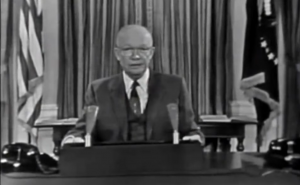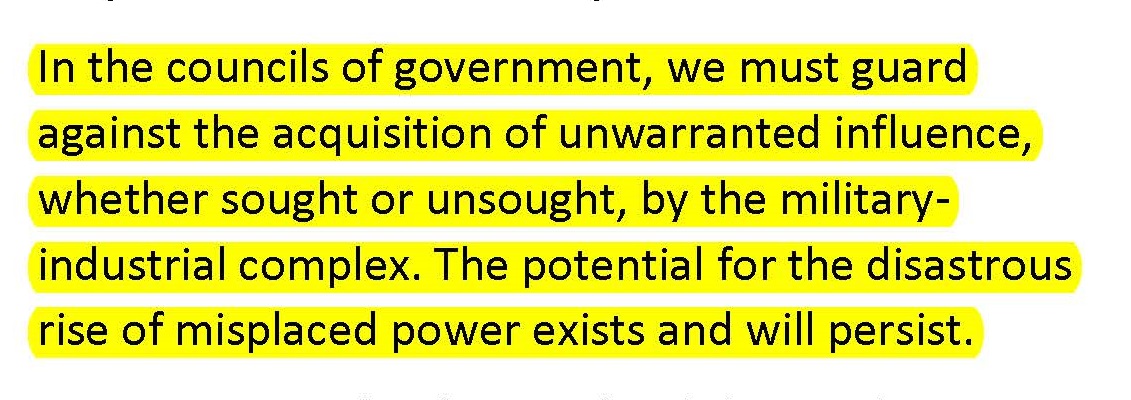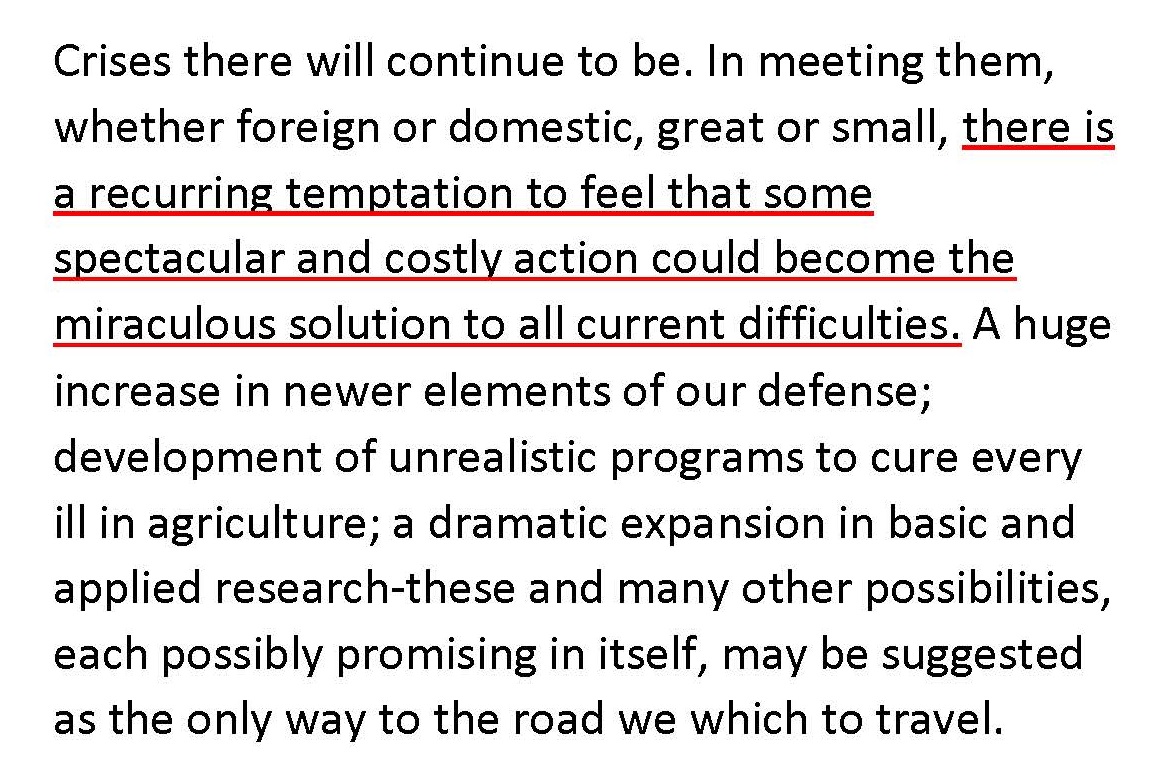Eisenhower warned us that it would come

We all could see on TV the chaotic evacuation from Kabul. Let us call it as it is. It is the final act of the largest fiasco in the history of humankind. The most powerful political, economic, and military empire on Earth went into a war against one of the poorest and most backward nations. It lost in disgrace after 20 years, with 2,300 soldiers killed, 20,000 wounded, and $2.26 trillion wasted.
It looks like déjà vu of the equally humiliating, messy escape from Saigon in 1975. I am old enough to remember. The younger readers should learn about it on the internet. Our leaders told us that they learned from that experience and that it would never happen again.
They have learned nothing. Or, to be precise, they do not want you to know what they have learned.
To understand what happened, we need to go back 60 years. Dwight Eisenhower, on the last days of his presidency, on January 17, 1961, addressed the nation. One can still find his speech on YouTube, but I doubt that any major media outlet will mention it in the context of the defeat in Afghanistan. Why? It is for you readers to conclude.
The essence of the Eisenhower farewell message is 150 seconds short; the whole speech is 16 minutes.
The two-term president and former supreme leader of Allied forces in Western Europe during World War II talked about things he knew he best, the military and the federal government. He noted that before WWII, the United States did not have, per se, a military industry. He said, “American makers of plowshares could, with time and as required, make swords as well.” Recognizing that we need “a permanent armaments industry,” he warned that “This conjunction of an immense military establishment and a large arms industry is new in the American experience. The total influence – economic, political, even spiritual – is felt in every city, every state house, every office of the Federal government. (…) Yet we must not fail to comprehend its grave implications.”
In commoner’s language, it means that the enormous amount of money we pay in taxes goes to a narrow group of people who benefit from selling military hardware and make a profit by providing national-security-related services. They gain disproportional influence over politics and can stipulate political situations requiring more government spending on the armaments and services they provide. Fearing that, Eisenhower said: “We must guard against the acquisition of unwarranted influence, whether sought or unsought, by the military-industrial complex. The potential for the disastrous rise of misplaced power exists and will persist.”
His warning was ignored in the following years. The United States got involved in Vietnam despite the fact that there was no national security threat from the Vietnamese people. There was a struggle for the political influence there among the United States, China, and the Soviet Union. Eisenhower’s suggestion for this kind of situation was that “Together we must learn how to compose difference, not with arms, but with intellect and decent purpose.” It implies that we should use our brains instead of guns and let China compete with the Soviet Union and the United States, winning by providing the advanced products and services that neither of the other two could. As we all know, the case of Vietnam proved that Eisenhower was right.
It was similar in Afghanistan. Yes, for some time, it was hosting a group of Saudi terrorists. As I wrote in another article, “More brains, less Halliburton,” starting the war in Afghanistan defeated its purpose. To catch a bunch of international criminals, we needed an elite group of crime chasers. We caught bin Laden this way. Occupying Afghanistan gave the extremists an argument that the American presence was the source of all the problems. Using some intellect, as Eisenhower suggested, we should have deduced this before sending soldiers to Afghanistan.
So, did we start the war because our politicians are so stupid? No, they went after the money. Our $2.26 trillion enriched many. And, it still left enough to support politicians, so they would “believe” that starting the war in Afghanistan was good for our national interest. Our tax money went as well to support your favorite TV news channel, whatever it might be, so they convinced you that we needed to be there.
When that $2.26 trillion was going down the drain in Afghanistan, they sold it to you as an opportunity because unemployed young people in your village could make a career in the military. It would be more beneficial to use the same money for new roads and bridges in your area, creating jobs. They convinced too many of us that our young people need to keep dying in Afghanistan instead.
You might have an impression that politicians in Washington cannot agree on anything. Please make a note that the Afghanistan fiasco was a bipartisan effort. It is not your vote anymore; “the potential for the disastrous rise of misplaced power” is fully realized.

 Many tell us what to think. I ask my readers to be skeptical. Question me and others.
Many tell us what to think. I ask my readers to be skeptical. Question me and others. 

